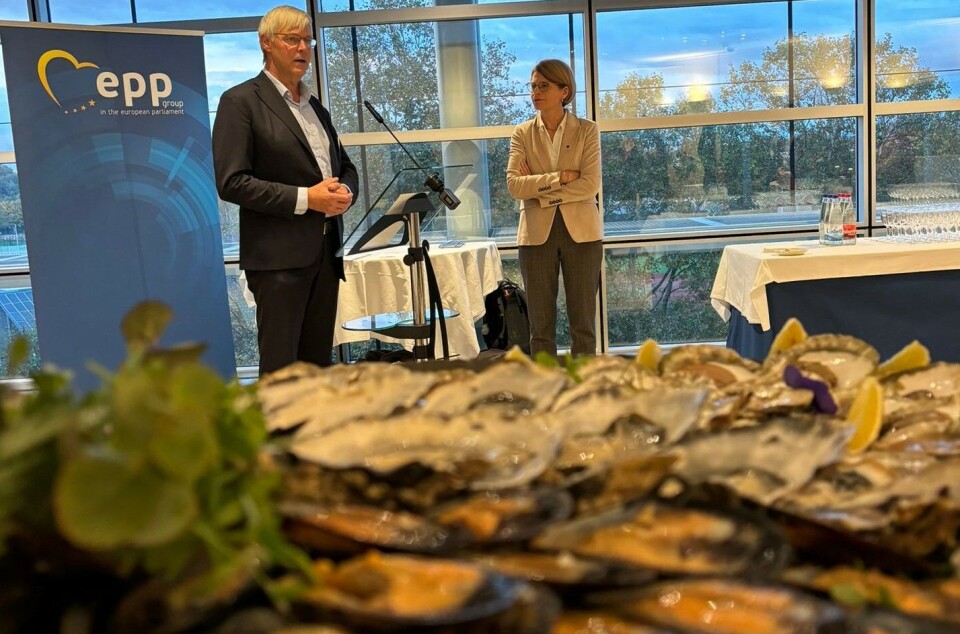
European shellfish growers seek a 'Common Aquaculture Policy' to reverse sector decline
Mollusc group wants cleaner water, more space, and payments for ‘ecosystem services’
Shellfish growers from Spain, France, the United Kingdom, the Netherlands, Italy and Ireland have called on the European Union to create a Common Aquaculture Policy to address “multiple crises” for the sector.
The European Mollusc Producers Association (EMPA), which says it represents 90% of the companies or operators involved in the production and marketing of shellfish in Europe, organised its first event in the European Parliament in Strasbourg this week.
The EMPA has published a Manifesto for the Sustainable Development of the European Shellfish Sector to reinvigorate European shellfish production, which it says increasingly suffers from contamination by diseases or pollutants. The manifesto calls for the EU to:
1. Acknowledge the role of shellfish farming in reinforcing Europe’s food sustainability, safety, sovereignty and nutrition
2. Triple the area allocated to shellfish farming to increase the production and the associated environmental and economic benefits
3. Leverage the development of shellfish farming to accelerate water quality improvement
4. Recognise the “Ecosystem services” provided by shellfish farming activities in support of the EU’s environmental and climate goals
5. Create a Common Aquaculture Policy
Defined objectives
“A clear European vision and defined objectives are essential if shellfish farming, and aquaculture in general, are to fully meet the challenges of food safety, sustainability and sovereignty,” states the EMPA manifesto.
20 years on from the first European strategy for the development of a sustainable aquaculture, mainland Europe has not managed to get aquaculture production off the ground in any significant way
EMPA
It points out that 20 years on from the first European strategy for the development of a sustainable aquaculture, mainland Europe has not managed to get aquaculture production off the ground in any significant way and to increase Europe’s self-sufficiency in aquatic food products.
“While environmental, agricultural and energy objectives are clearly set out in binding policies and legislative frameworks, the EU lacks a Common Aquaculture Policy to provide the necessary coordination, coherence and political impetus at the European level.
“We therefore ask the EU and its Member States to introduce a Common Aquaculture Policy [and] define clear objectives on the development of low trophic level aquaculture.”
Pay us for cleaning water
The manifesto points out that shellfish farming provides numerous ecosystem services, such as water clarification, nitrate and carbon absorptions, habitat creation for other marine species, limiting the risk of algal blooms, and conservation of wild shellfish, which are widely recognised by the scientific community, but not yet fully integrated into public policies.
“The recognition of these ‘ecosystem services’, through the introduction of certification systems and compensatory payments for producers, is an essential lever if this production is to play a full part in the transition towards more sustainable food systems and in meeting the challenges of the biodiversity and climate crises,” states the EMPA.
Isabelle Le Callennec, a member of the centre-right European People’s Party grouping in the European Parliament, hosted the event in Strasbourg.
She described shellfish production as “a profession that contributes to the objectives of food autonomy; a sector of activity that creates jobs; a key player in the sustainability of our environment, acting as nitrogen sinks or a means to combat coastal erosion”.
Unfulfilled ambition
EMPA president Addy Risseeuw, who is secretary of the Dutch Producers Organisation of Mussel Growers, said: “The EU envisions a future where sustainable aquaculture plays a pivotal role in food security, environmental sustainability, and economic resilience. Unfortunately, the reality on the ground is very different. Not only the sector is not growing, we are decreasing year after year.”
According to the EMPA’s manifesto, mollusc production is the largest segment of aquaculture in the EU, with an annual production of over 500 million tonnes. At European level, the shellfish production sector represents an annual production worth €1.170 billion, and more than 50% of aquaculture production. However, the sector has been in steady decline for 20 years.
Although the UK is no longer in the EU, it is represented on the EMPA by the Shellfish Association of Great Britain.























































